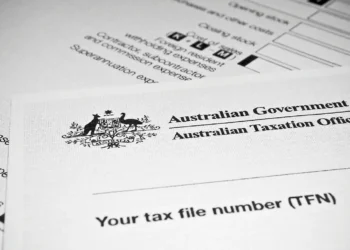Michael Probert, Chief Commercial Officer at iSoftBet, discusses why a combination of timing and the region’s characteristics could see a regulated online environment edge closer to becoming reality.
The unprecedented events of 2020 have seen land-based casino revenues nosedive, with no immediate signs of recovery. Gross Gaming Revenue (GGR), especially in states where online gaming is not possible, have tumbled with GGR in Macau estimated to have fallen by 97% in June and 94.5% in July. One major casino brand recently admitted to losing US$2 million a day.
While there are some green shoots of growth returning in several nations across the globe, with restrictions such as social distancing measures in place, it will be a challenge to reclaim the atmosphere, excitement and thrills that accompany a physical casino experience.
 So, can the shuddering halt of the land-based industry act as a catalyst for change in Asia, and encourage players to try online casino?
So, can the shuddering halt of the land-based industry act as a catalyst for change in Asia, and encourage players to try online casino?
Currently, the Philippines acts as the sole bastion for regulated online gaming within the region and is one of the largest hubs globally. Some nations have flirted with regulating iGaming, particularly as there is a thriving grey market presence. However, with the loss in revenue for casinos and gaming giants across the world, opportunities now exist for a pivot in attitudes and, if the authorities become aligned, we could soon see change.
Regulation of online casino could bring significant change to the region, but changes that would make sense. By regulating, nations can protect players from unscrupulous, black market operators and enact stringent KYC/AML checks, ensuring legal processes are kept.
It would also allow markets to progress and grow. In nations with tight regulation, not only are players more protected, but there is a perfect fermenting ground for innovation. Colombia is a strong example of a regulated territory shining amidst grey markets, attracting suppliers and operators who are not afraid to introduce new products because the regulatory framework allows them.

Even recently-regulated nations like Switzerland that have a strong land-based tradition have seen the positive outcomes of online regulation, allowing the frameworks to dictate positive behaviors while punishing those who look to circumvent rules, putting money back into the government’s pockets while encouraging those who abide by the rules to flourish.
READY-MADE ENVIRONMENT
Unlike many regions across the globe, Southeast Asia is ready-made for online casino. Historically, many nations enjoy a gambling pastime, such as Mahjong or Sic Bo, while also having healthy sports betting or land-based appetites.
There is also an impressive level of internet connectivity, and widespread mobile and desktop ownership. Several nations in Southeast Asia have an internet penetration of more than 80%, coupled with large populations, making them potentially mouth-watering online casino opportunities.
 For years, grey and regulated markets have coexisted in Southeast Asia, so suppliers have a clear understanding of what content works with local players. Many slot offerings are littered with a plethora of Lucky Cats, Wealth Gods, and other associated Asian-themed titles. While this is not necessarily the only key to generating gaming success, having recognizable and relatable content can often be a safe way of acquiring customers looking for fun experiences.
For years, grey and regulated markets have coexisted in Southeast Asia, so suppliers have a clear understanding of what content works with local players. Many slot offerings are littered with a plethora of Lucky Cats, Wealth Gods, and other associated Asian-themed titles. While this is not necessarily the only key to generating gaming success, having recognizable and relatable content can often be a safe way of acquiring customers looking for fun experiences.
THE NEXT STEPS
With no real concrete dates as to when land-based gaming can return to normal, the pathway has never been clearer for online gaming, yet many obstacles remain. Regulation will never happen overnight, even with the Philippines acting as a regional leader with PAGCOR for many years. However, as with Brazil’s recent comments on the potential for regulating sports betting in the wake of the pandemic, and as significant revenue figures from US states such as New Jersey have shown in the last few weeks, legalized online gambling is proven to generate considerable returns for governments.
Taking a similar approach in Southeast Asian markets could lead to swift regulatory frameworks and positive outcomes for players, the authorities, and the local and international gambling industry. While it would require significant planning and a huge leap of faith, it is an increasingly online, mobile and connected world, and the previous months could be the spark required to make the ultimate jump and transform the region into a regulated online powerhouse.


































